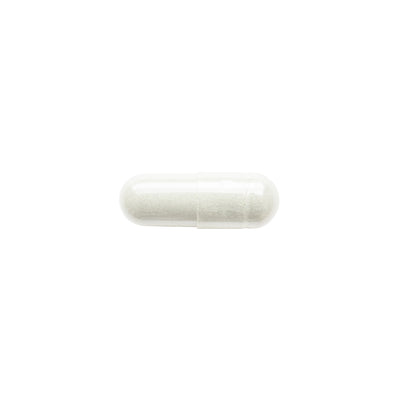Truth About Fat Burning Foods
 The Truth About Fat Burning Foods
The Truth About Fat Burning Foods
When you pay attention the phrase “fats burning food”,you can consider your self sitting again together along with your far flung and your snacks at the same time as your six percent miraculously surfaces.But earlier than you get equipped to veg out, let`s take a more in-depth study what “fats burning” on this context truely means.It`s true, as compared with LCTs (lengthy chain triglycerides) positive sort of fats referred to as MCTs (medium chain triglycerides)boom your our bodies electricity expenditure and are connected to reduced weight, waist circumference, hip circumference, and visceral fats (1). But what does this imply in practice?
Are MCTs overhyped?
A meta-analysis of randomized controlled trials (meaning a summary of all the best research) found that study participants lost an average of 1 pound of body weight over the course of three weeks. In statistical terms this is a “significant” finding, but practically speaking, you may decide that spending $30 on a bottle of MCTs oil isn’t worth the potential weight loss. So,what is all the hype?
The upside of MCTs
MCTs have fewer carbons than LCTs and are sent directly to the liver to be metabolized rather than entering the blood stream. This makes them particularly useful when it comes to treating certain malabsorptive disorders (2). For example, if you have any disorder involving your pancreas or gall bladder, MCTs are a good source of fat and dietary calories.There is also research that suggest MCTs do not increase your risk for cardiovascular disease like over consumption of some saturated fats can (think butter)3,4. Of course, MCTs are not the only oil in the spotlight.
What about Coconut Oil?
The buzz over MCTs has led to the rise in consumption and popularity of coconut oil.Don’t worry. I’m not going to suggest you deny yourself the joy of a product you can both eat and use as a lotion(I have a jar of coconut oil in my kitchen cabinet because it makes a delicious stir-fry), but it’s important to know the facts before you decide to purchase it because it’s a ‘health food’. Coconut oil made the health food list because it is made up of about ~50% MCTs and at one point it was suggested that although it’s a saturated fat like butter, it doesn’t act like one in the body. However, a recent review of the research concluded that consumption of coconut oil can increase your LDL cholesterol (that’s the bad kind that increases your risk for heart disease)and should be classified as a saturated fat (4).
The moral of this story is to always question nutrition buzz words. It is not rare for the media to overgeneralized and incorrectly apply research as advice for the general population. To unravel more truths about sources of fat that actually are beneficial for your body, check out our blog post: A Guide to Omega-3 Fatty Acids. You can also visit personanutrition.com and take our assessment to find out which supplements may be right for you and your weight loss journey.
Not sure where to start?
You can take a look at our selection of supplements.
Need more personalized approach ?
Contact us via Chat, available 7/7 a professional naturopath will be happy to help you.
This information is not intended as a substitute for the advice provided by your physician or other healthcare professional or any information contained on or in any product label or packaging. Do not use the information from this article for diagnosing or treating a health problem or disease, or prescribing medication or other treatment. Always speak with your physician or other healthcare professional before taking any medication or nutritional, herbal or homeopathic supplement, or using any treatment for a health problem. If you have or suspect that you have a medical problem, contact your health care provider promptly. Do not disregard professional medical advice or delay in seeking professional advice because of something you have read in this article.
References:
1.W, M. (2019).Effects of medium-chain triglycerides on weight loss and body composition: a meta-analysis of randomized controlled trials. -PubMed -NCBI. [online] Ncbi.nlm.nih.gov. Available at: https://www.ncbi.nlm.nih.gov/pubmed/25636220 [Accessed 28 Oct. 2019].
2.Shah, N. D., & Limketkai, B. N. (2017, February). The Use of Medium Chain Triglycerides in gastrointestinal disorders. Retrieved from https://med.virginia.edu/ginutrition/wp-content/uploads/sites/199/2014/06/Parrish-February-17.pdf.
3.Sung, M.-H., Liao, F.-H.,& Chien, Y.-W. (2018, July 26). Medium-Chain Triglycerides Lower Blood Lipids and Body Weight in Streptozotocin-Induced Type 2 Diabetes Rats. Retrieved from https://www.ncbi.nlm.nih.gov/pmc/articles/PMC6115836/.
4.St-Onge, M.-P., Bosarge, A., Goree, L. L. T., & Darnell, B. (2008, October). Medium chain triglyceride oil consumption as part of a weight loss diet does not lead to an adverse metabolic profile when compared to olive oil. Retrieved from https://www.ncbi.nlm.nih.gov/pmc/articles/PMC2874191/.5.Sankararaman, S., & Sferra, T. J. (2018, September). Are We Going Nuts on Coconut Oil? Retrieved from https://www.ncbi.nlm.nih.gov/pubmed/29974400.
- Truth About Fat Burning Foods By Allie Sartori, MSN https://www.personanutrition.com/blog/truth-about-fat-burning-foods/



